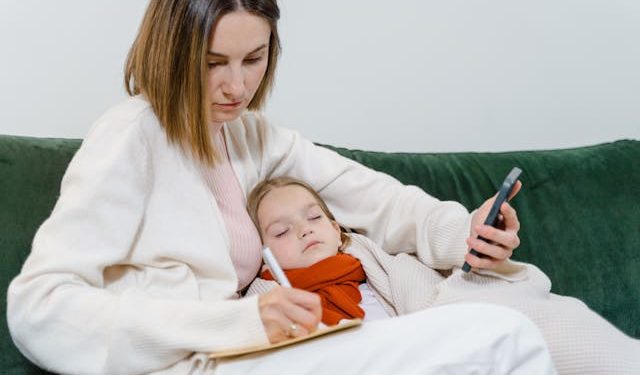It is widely feared by parents and caregivers that children can get high fever. It is very important to assess fevers as they are natural for the body since they indicate infection; nonetheless, higher temperatures may at times be worrying. Knowing when to go to a medical expert is very important when it comes to the well-being of a child. Thus, allowing you to spot the early signs and symptoms of a high fever while giving you some recommendations on how to address it.
Understanding Fever in Children
A fever is defined as a temporary increase in body temperature, often due to an illness. In children, a fever is typically considered to be a body temperature above 100.4°F (38°C). While fevers are a common symptom of many illnesses, including the flu and other viral infections, they are not always a cause for concern. However, high fever in kids can sometimes indicate a more serious condition that requires medical attention.
When to Seek Medical Attention for High Fever in Kids
It is important to understand when it is appropriate to consult a doctor as regards high fever in kids. In general, you should contact a healthcare provider if:
- Your child is still very young, specifically less than 3 months, and has a fever of 100. 4°F (38°C) or higher.
- Your child is between three months and three years and his/her temperature is 102°F (38. 9°C) or above.
- Your child is 3 years old and above but has a fever with the following parameters.
- Even though there are feelings of fever, these are more than after three days.
- Your child displays signs of dehydration like dry mouth, no production of tears when crying or your child produces less or no wet diapers.
- Your child suffers from a severe condition where he or she has certain problems with his or her breathing, frequent vomiting, or a rash.
Recognizing Serious Symptoms
However, there are some signs that, if observed alongside a high fever in children, may mean something else: Seek immediate medical attention if your child has a high fever along with any of the following:
- Seizures or convulsions
- Stiff neck
- Severe headache
- Unusual irritability or confusion
- Continual or long-lasting pain in the tummy or any other part of the body
Managing Fever at Home
It is therefore relevant to understand when one should consult a doctor but most fevers can be treated at home. Here are some tips for managing your child's fever:
Keep Your Child Hydrated
Some of the conditions that may be brought by fevers include dehydration and thus one should ensure that the kid takes a lot of water. Give water, ORS, and clear soups. Say no to tea, coffee, and other such beverages as they can aggravate the problem of dehydration.
Use Fever-Reducing Medications
Pain relief medication such as paracetamol or another non-prescription painkiller such as ibuprofen might help to bring the fever down and ease your child. stay with the dose prescribed on the container and talk to the pediatrician if you have any questions.
Dress Your Child Comfortably
A child’s outfit should be loose and made of very thin material, and the room should be comfortably warm. Do not pile on blankets and do not overdress the child as this leads to a rise in the fever.
Encourage Rest
Exercise is important to help the muscles grow and become strengthened but rest is equally important to allow muscles to relax and be renewed. It is also important for your child to rest and carry out minimal exercises until they fully recover.
Monitoring and Follow-Up
Thus, if your child has a fever it does not necessarily mean they will have to be admitted since, one can manage it at home but they should watch their child, and if there are any changes the child has to see a doctor. Record their temperature and if they perceive to be developing any other symptoms. If there is any change further in the condition or the fever continues then one should consult a physician.
Conclusion
While only one of these symptoms, high fever definitely should raise concern when it comes to children, as knowing when to go seek medical help and how to handle fever at home can greatly impact the child’s recovery. It is always better to be safe and if you are confused, always advise your child’s doctor. Thus, being informed and acting promptly, you will be able to protect your child’s health at the time of disease.


























